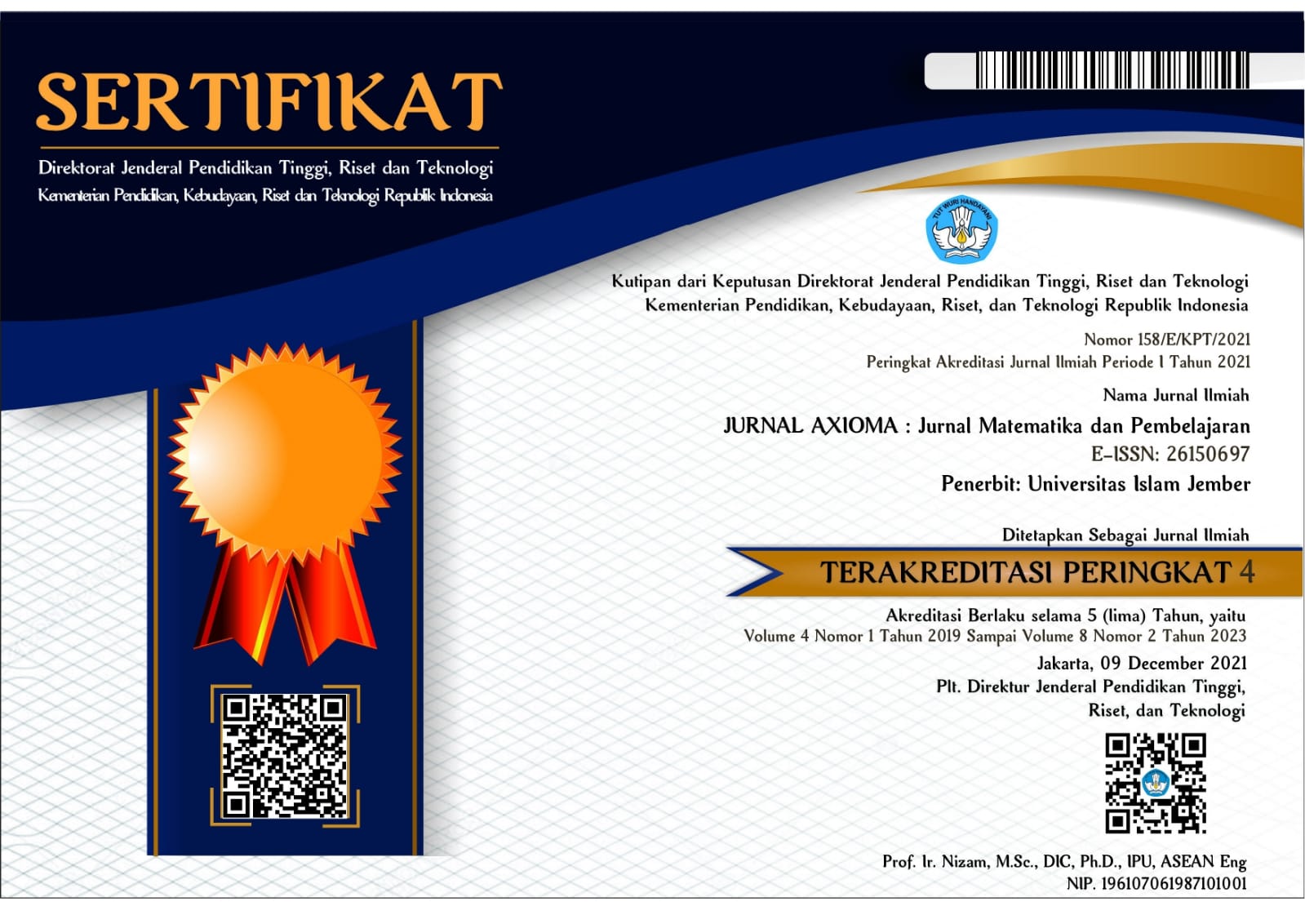Misinterpretasi Konteks Dunia Nyata dalam Memecahkan Masalah Literasi Matematis
DOI:
https://doi.org/10.56013/axi.v9i2.2843Abstract
This study employs a qualitative approach to describe junior high school students' interpretative abilities in solving mathematical literacy problems. The sampling technique used in this research is purposive sampling. Credibility testing is conducted through source triangulation, which is used to test the credibility of data by cross-checking data obtained from several sources. The results of this study indicate that both subjects, S1 and S2, utilize real-world contexts to check the reasonableness of their answers, provide arguments, and set solution boundaries. However, the use of real-world contexts in interpreting mathematical literacy problems is insufficient to produce correct answers. Misinterpretation of the real-world context by both subjects leads to an inability to appropriately link mathematical concepts with their real-world applications. This study highlights that, in addition to using real-world contexts, a good understanding of mathematical concepts is essential for correctly solving mathematical literacy problems.
Keywords: misinterpretation, real-world context, mathematical literacy problems


2.jpg)
.jpg)











